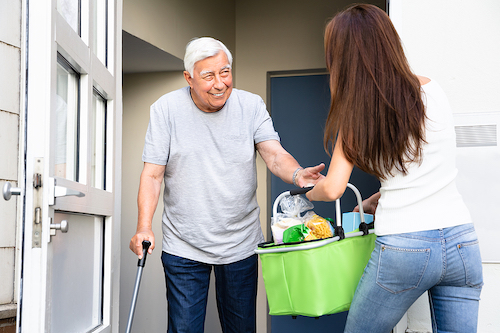 Doing good deeds and being kind to others can be good for health and wellbeing.
Doing good deeds and being kind to others can be good for health and wellbeing.
Research published by the American Psychological Association found pro-social behavior like acts of kindness and helping others could be beneficial, but not all good deeds could provide equal benefits.
Factors like type of good deed or act of kindness, age of the person giving kindness, gender and demographic factors can all influence the strength of the link between well-being and prosocial behavior.
Some prior studies have shown a link between prosocial behavior and better mental and physical health. But some studies have not found such a link, and the strength of the association varied widely across studies.
“Researchers have proposed different theoretical perspectives supporting the link… It seems that there are a pretty strong or substantial relationship between the two variables. But the thing is when I reviewed the empirical studies, on one hand, I found a number of studies showing an ok or strong relationship… (but) on the other hand, some studies reported a weak or negative relationship,” Bryant P.H. Hui, PhD, lead author of the study and a research assistant professor at the University of Hong Kong told Theravive.
“This research is important because after decades of works, we need to know where we are now. Is there really a link between prosociality and well-being? Is it strong or weak?”
In undertaking the research, Hui and colleagues did a meta-analysis of 201 studies involving over 198 thousand participants that examined the association between prosocial behaviour and well-being.
They concluded there was a modest link between prosocial behaviour and well-being. Hui says that although modest, that association is still important.
“Given that so many people around the world act prosocially, for example more than a quarter of Americans aged over 16 volunteer… the modest effect size between prosociality and well-being can still have a significant impact at a societal level,” he said.
“It can still translate into substantial societal significance when many people or the same persons were affected repeatedly, and when only a little and inexpensive effort is needed to possibly make a change, which can be cumulative over time. If people know actually it can improve their own well-being, it will motivate them to act prosocially, which in turn benefits more people or improves more people’s well-being. It’s a win-win situation.”
Of the acts of kindness studied, Hui found that random acts of kindness like helping someone carry something heavy had a stronger association with wellbeing than formalised prosocial behaviour like volunteering. Hui says this may be because informal acts of kindness satisfy basic psychological needs like autonomy, competence and relatedness.
“Informal helping is more casual, spontaneous, and freely chosen compared to formal helping, where helpers/givers have to follow certain rules, regulations, or decisions of a formal organization. Daily helping acts, as well as private and unorganized assistance are relatively easier ways for helpers/givers to establish social relationships in which they feel close to and accepted by important others,” Hui said.
“Formal helping such as regular volunteering can become stale, monotonous, and burdensome, and hence, fail to contribute to positive emotions and well-being benefits; whereas informal helping, which is novel and varied, is more likely to be associated with stronger well-being benefits,” he said.
The researchers found that there was a stronger link between kindness and a form of wellbeing called eudaimonic wellbeing (which involves one realising one’s purpose and finding meaning in life) rather than hedonic wellbeing (which involves happiness and positive emotions).
Type of wellbeing gained also varied based on age and gender.
“Demographically, younger givers exhibited higher levels of well-being other than physical health, while older and retired givers reported better physical health only. Female givers showed stronger relationships between prosociality and eudaimonic well-being, psychological malfunctioning, and physical health,” Hui said.
The researchers note that future research in this area could examine the impact of ethnicity and social class on the link between kindness and wellbeing. An examination of whether there is an ideal level of prosocial behaviour, or whether there is such a thing of giving too much kindness, they say, would also be an important area of research.
Hui is hopeful his research encourages people to be kind to others and engage in prosocial behavior.
“We would like to take this opportunity to advocate or promote prosocial behaviour which, we strongly believe, is the universal virtue behaviour and the shared culture of humankind. It is a very inexpensive and economic way to benefit others as well our own well-being, especially during this difficult pandemic time.”
Elizabeth Pratt is a medical journalist and producer. Her work has appeared on Healthline, The Huffington Post, Fox News, The Australian Broadcasting Corporation, The Sydney Morning Herald, News.com.au, Escape, The Cusp and Skyscanner. You can read more of her articles here. Or learn more about Elizabeth and contact her via her LinkedIn and Twitter profiles.